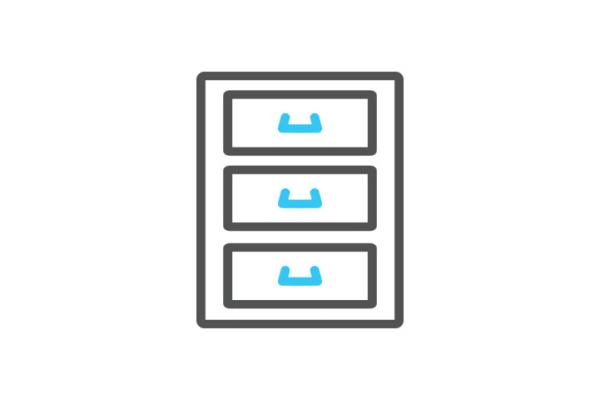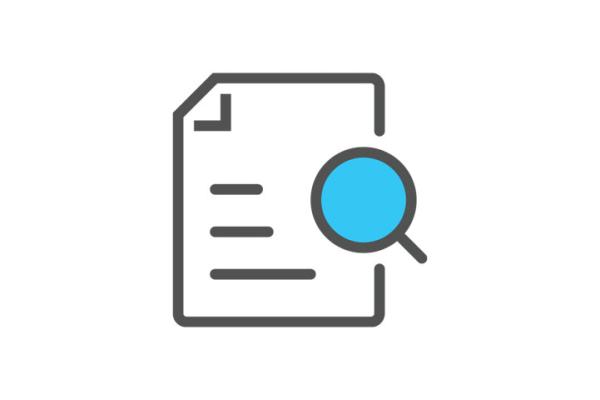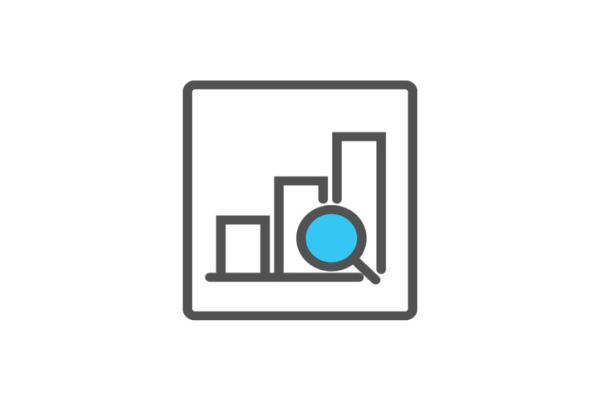Prevention
Eliminate cervical cancer caused by Human papillomavirus
One of the goals of Europe’s Beating Cancer Plan is to eliminate cervical cancer by vaccinating young people against the Human papillomavirus (HPV) that causes it and is also linked to head and neck, and anal cancers.
Specifically, Europe’s Beating Cancer Plan calls for vaccinating at least 90% of the EU’s target population of girls and for significantly increasing the vaccination rate among boys.
In 2024, the Commission presented a proposal for a Council Recommendation on vaccine-preventable cancers to support EU countries in boosting the uptake of vaccination against Human Papillomaviruses (HPV) and Hepatitis B virus (HBV).
Recommendations to EU countries will include facilitating access to vaccination, targeted communication on the importance of HPV and HBV vaccination in a cancer prevention perspective and better monitoring of vaccination coverage rates to inform public health action.
Several Joint Actions and EU-funded projects support HPV vaccination. These include the Joint Action on PartnERship to Contrast HPV (JA PERCH), which supports Member States’ efforts to extend the roll-out of routine HPV vaccination in the coming decade. Projects funded under the EU4Health Programme aim to improve access to HPV vaccination.
Cervical cancer is one of the most preventable and treatable forms of cancer. It is the second most common cancer after breast cancer to affect women aged 15–44 years in the EU, but HPV can cause cancer in both women and men. Each year, there are around 33 000 cases of cervical cancer in the EU, and 15 000 deaths.
In May 2018, the World Health Organisation (WHO) set a target of 90% coverage of HPV vaccination in girls by 2030 in the Global strategy to accelerate the elimination of cervical cancer as a public health problem.
In the EU, HPV vaccination has been gradually introduced in national immunisation programmes since 2007, but policies and vaccination coverage rates vary across countries.
Early detection
EU Cancer Screening Scheme
In the best possible world, cancer would be prevented entirely. The next best scenario would be detecting all cancers early, which greatly increases the chances for survivorship.
The EU Cancer Screening Scheme marks a new approach to strengthen cancer prevention through early detection.
An important step has already been taken to improve early detection in the EU – the adoption of a new Council Recommendation on Cancer Screening.
This marks the first time since 2003 that the Recommendation has been updated. This new EU approach, based on the latest available scientific developments and evidence, will help ensure that 90% of the EU population who qualify for breast, cervical and colorectal cancer screenings are offered these types of screenings by 2025.
The new Recommendation also calls for extending screening programmes to prostate, lung and, under certain circumstances, gastric cancer and will help to reduce inequalities and disparities between Member States.
Financial support for boosting cancer screening is available, with €38.5 million already committed for projects under the EU4Health Programme, and €60 million under Horizon Europe.
Under the 2023 EU4Health Work Programme, an additional 38.5 million will support Member States to implement this new Council Recommendation and to develop EU guidelines. Further support can also be provided from the European regional, cohesion and social funds.
EU-funded projects will strive to improve the quality and access to cancer screening programmes across Europe, as well as to strengthen cancer screening data collection to update the European Cancer Information System.
Other projects will be forthcoming, funded under the 2023 EU4Health Work Programme, to support the development of EU guidelines and quality assurance schemes for lung, prostate and gastric cancer screening.
Additionally, a direct grant may be provided to Member States’ authorities to support the new Recommendation’s implementation.
Having access to screening is important, but it must be high quality screening to accurately detect cancer at the earliest stage possible. That’s why the European Commission has also produced European guidelines to assure high-quality screening of breast and colorectal cancers and complementary recommendations on diagnosis.
In collaboration with WHO’s International Agency for Research on Cancer (IARC), the existing guidelines on cervical cancer are also being updated.
Diagnosis and Treatment
EU network of National Comprehensive Cancer Centres
Europe’s Beating Cancer Plan calls for setting up an EU Network of National Comprehensive Cancer Centres by 2025 to link national multicentric complexes at EU-level.
These multicentric complexes manage all aspects of cancer care, and the EU Cancer Plan aims to ensure that 90% of eligible patients have access to such centres by 2030.
This EU Network will make it easier for Member States to provide citizens with screenings and cancer care that meets the standards set by European guidelines and quality assurance schemes for population based screening programmes.
This same quality assurance will apply to training, research and clinical trials across the Union.
This flagship objective is also clearly connected to the European Health Data Space and the European Digital Cancer Patient Centre, and its work will help meet the EU4HealthProgramme’s general objective of improving and fostering health in the EU.
Two Joint Actions with Member States have been launched to support the creation of this EU Network: the Network of Comprehensive Cancer Centres (JA CraNE) and Networks of Expertise (JA JANE).
In addition, the Commission launched another project under the 2021 EU4Health Work Programme to help reduce inequalities in cancer care and treatment across the European Union. New actions under the 2023 EU4Health Work Programme will further support the establishment or improvement of national Comprehensive Cancer Centres and Networks, and the establishment and integration of new cancer networks of expertise focusing on non-rare cancers and cancer conditions not covered by the established European Reference Networks.
Cancer Diagnostic and Treatment for All
Cancer is strongly driven by genomic modifications, and new technological approaches are now available for diagnostic, therapeutic and personalised risk-assessment for prevention. These new approaches are helping to prevent cancer and improve the chances for recovery and survivorship, and should be accessible to all EU citizens.
As with any technological advance, there must also be guidelines and best practices that guarantee a viable and high standard of performance.
The ‘Cancer Diagnostic and Treatment for All’ initiative will help Member States improve access for individuals, cancer patients and survivors to prevention, diagnosis and treatment of cancer through personalised medicine and the use of the latest innovations in cancer care.
This initiative will use the ‘next generation sequencing’ technology for a quick and efficient application of personalised cancer diagnosis and treatment.
It will help share the results of the genetic profiling of patients and tumour cells, allowing cancer centres to apply the same or similar diagnostic and therapeutic approaches to patients with comparable cancer profiles across the Union.
Several projects financed under the 2021 EU4Health Work Programme have been launched under this flagship initiative. One of the projects will contribute to the EU Cancer and Public Health Genomics platform, while others will improve diagnostics and survival for all children with Acute Myeloid Leukaemia and the survival and quality of life of cancer patients in the EU using Personalised Cancer Medicine.
European Initiative to Understand Cancer
The EU Mission on Cancer calls for setting up a Europe-wide platform, UNCAN.eu, to help improve our understanding of both common and rare forms of cancer. This will require a new level of investment in innovative research, including in high-potential /high-risk projects.
UNCAN.eu will utilise existing, relevant research infrastructures and invest in the development of models and technologies to study poorly understood cancers. It will pool expertise and relevant players from Europe and beyond.
Reliable, high-quality cancer research data generated by experimental model analysis and collected from longitudinal follow-up of cancer patients will be shared and integrated at an unprecedented scale.
This information will be used to address urgent and essential scientific and medical challenges in cancer prevention, early diagnosis and the treatment and survivorship.
The 4.UNCAN.eu project is drawing up the blueprint for the UNCAN.eu initiative. The resulting platform will help meet the objectives of both the Europe’s Beating Cancer Plan and the Mission on Cancer.
Quality of life of cancer patients and survivors
Better life for cancer patients initiative
Getting a diagnosis of cancer is devastating and going through treatment can be debilitating.
Patients and their caregivers need clear information and emotional and social support, yet cancer survivors often report difficulties in communicating with oncologists, general practitioners and nurses, and in establishing contact with social services.
The “Cancer Survivor Smart Card” will make it easier for cancer patients and survivors and health and social care providers to communicate with each other, which will help improve quality of life, promote healing and reduce suffering.
Another factor in ensuring a higher quality of life is reducing the discrimination cancer patients and survivors often confront. Europe's Beating Cancer Plan wants to ensure fairness in accessing financial services through developing a code of conduct for companies, for example, for the increasing number of survivors in long-term remission.
Some Member States have already taken steps to protect patients' Right to be Forgotten’, so that cancer patients and survivors do not face employment, financial or social discrimination.
As some cancers are now being considered as chronic diseases due to better treatments, more patients and survivors will be able to remain on the job or return to work.Yet, those who remain in the workforce must be given adequate social protection and benefit from supportive/rehabilitation/reintegration measures.
The European Commission is working towards facilitating rehabilitation and return to work for cancer patients and survivors, thus, reducing the related societal and economic impacts.
Cancer patients and survivors, their families and caregivers all need access to information. The Commission is working to provide them with a virtual knowledge centre, the European Cancer Patient Digital Centre (ECPDC), where they can find in-depth information on topics like prevention, diagnosis, treatment guidelines, treatment side-effects and access to cross-border health care.
The ECPCD will be a federated network of patient-controlled (national) health data infrastructures and will allow the voluntary exchange of patients and survivors’ health data for primary and secondary use.
New projects under the 2023 EU4Health Work Programme, will also address the considerable mental health challenges of cancer patients and survivors and also aim to develop a European Code for Mental Health.
Reducing inequalities
Cancer Inequalities Registry
The European Cancer Inequalities Registry (ECIR) aims to identify trends, disparities and inequalities between Member States and regions to guide targeted investments and interventions at EU, national and regional levels.
President Von der Leyen launched the flagship on 2 February 2022 with its first milestone, the ECIR website and Data Tool. The data tool allows users to explore data on cancer burden, prevention, treatment and care by several inequality dimensions, including differences between countries, sex, age, education, income, urbanisation level, disability and employment status.
A key deliverable of the initiative is a series of 29 Country Cancer Profiles (for each Member State, plus Iceland and Norway), complemented by analytical EU reports. These reports allow us to track progress over time and identify remaining challenges ahead.
The Country Cancer Profiles provide insights on cancer burden, prevention and care across European countries. The second edition was published on 3 February 2025, and includes the Synthesis report and the Country Performance Tracker. This powerful tool analyses country performance compared to the EU level for a selected number of cancer indicators.
The first analytical report “Beating Cancer Inequalities in the EU: Spotlight on prevention and early detection,” was published in January 2024. It examines policies and actions to tackle cancer care across the EU 27, Norway and Iceland, with a specific focus on addressing prevention and early diagnosis to counter concerning cancer trends and inequalities. The next analytical EU report will be published in 2026.
The Cancer Inequalities Registry is governed by the European Commission - Directorate-General for Health and Food Safety (DG SANTE) and prepared in close collaboration with the Commission's Joint Research Centre (DG JRC), the Organization for Economic Cooperation and Development (OECD) and the International Agency for Research on Cancer (IARC).
Childhood/Paediatric cancer
Helping Children with Cancer
An EU Network of Youth Cancer Survivors was launched in February 2022 to help improve the quality of life of young cancer survivors. It aims to promote targeted actions and initiatives that have been proven to work and builds on the experiences of key players active in childhood, adolescent, and young adult cancers.
Young cancer patients and survivors need to be able to share experiences and information, to know that they are not alone and have someone their age who understands. The new Network takes a proactive approach to healthy cancer survivorship and will boost social networking.
A ‘Cancer Survivor Smart Card’ will link with a ’resource’ function to give access to best practices, guidelines and recommendations specifically targeted to cancer survivors.
This will help patients and survivors to connect with experts and get the answers they need about pressing questions, like how to handle late and long-term effects of treatment, how to deal with anxiety, depression and pain, and how to face the emotional distress of tumour recurrence and metastatic disease.
More focus will be given to mental health challenges, through EU projects funded under the 2023 EU4Health Work Programme, and a European Code for Mental Health will be drafted.
Many cancer survivors in long-term remission experience discrimination in accessing financial services. Europe's Beating Cancer Plan aims to change that. The Commission, together with other EU institutions, is discussing viable solutions, and is developing a code of conduct for financial services providers.
Also to help cancer patients and cancer survivors, some Member States have already legislated to protect their “Right to be Forgotten”.
Research and innovation, digital and personalised medicine
Knowledge Centre on Cancer
A new Knowledge Centre on Cancer was launched in 2021 within the Joint Research Centre to help coordinate scientific and technical cancer-related initiatives at EU level. The Knowledge Centre on Cancer does not directly provide clinical information to individual cancer patients, but contributes indirectly to the overall improvement of EU level approaches to tackling cancer.
The Knowledge Centre on Cancer provides independent, scientific/evidence-based information through EC-established cancer systems, portals and platforms. Its four main areas of activities are:
- The European Cancer Information System, which monitors and projects the burden of cancer in Europe in collaboration with over 150 registries contained within the European Network of Cancer Registries;
- European Guidelines and Quality Assurance Schemes for Cancer Screening, Diagnosis and Care;
- Cancer Prevention via the Health Promotion and Disease Prevention Knowledge Gateway;
- Rare cancers and the European Platform on Rare Disease Registration.
Additionally, the European Cancer Inequalities Registry, which is part of the Knowledge Centre on Cancer, provides sound and reliable data on cancer prevention and care to identify trends, disparities and inequalities between Member States and Regions.
European Cancer Imaging Initiative
The Cancer Imaging Initiative aims to create a new EU state-of-the-art platform for innovators to pilot new technologies to help beat cancer.
This will, for example, support the development of new computer-aided tools based on AI technologies to improve personalised medicine and innovative solutions in cancer care.
It will also lead to the improvement of digital technologies used in cancer treatment, increase the quality and accuracy of tools in diagnosis support and screening tools, and support the adoption of precision medicine in the clinical practice, providing the way forward for the next generation of diagnostics and treatments for cancer patients.
The cornerstone of the initiative will be a federated European infrastructure for cancer images data deployed under the DIGITAL programme.
The infrastructure will make anonymised cancer data available to clinicians, researchers and innovators and it will provide an experimentation platform for developing and benchmarking AI tools for precision medicine in cancer diagnosis and treatment.
Having a federated cancer imaging resource at EU level will help address the risks and challenge using AI in healthcare without increasing inequalities.






